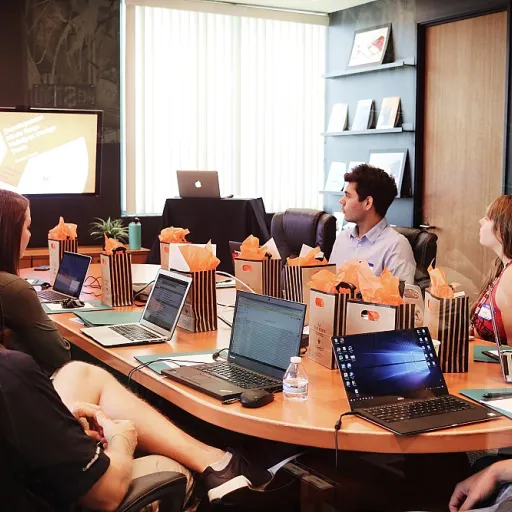
Understanding the Importance of Assessments in Manufacturing
Recognizing the Critical Role of Assessments in Manufacturing
The manufacturing industry is a vital component of our economy, and the need for skilled professionals in this sector cannot be overstated. With the rise of automation and advanced technologies, hiring managers are increasingly relying on assessments to help pinpoint the manufacturing talent that not only fits the job roles but also possesses the necessary skills to excel in their position. Manufacturing assessments have become an integral part of the hiring process. These assessments are designed to measure a candidate’s ability, aptitude, and problem-solving skills specific to manufacturing roles. By utilizing various assessment tools, companies can ensure that candidates not only meet the technical requirements of the job but also demonstrate essential soft skills, like attention to detail and teamwork. An effective manufacturing test provides a wealth of data that can guide hiring decisions, helping organizations streamline their recruitment process. This data-driven approach ensures that the right talent is selected for the job, ultimately leading to better job performance and reduced turnover. To enhance your candidate sourcing techniques and better understand the importance of assessments in manufacturing, you may consider exploring effective strategies for MRO sourcing, which offer insights into optimizing your recruitment efforts. Understanding the importance of assessments can provide insights into selecting the best fit for manufacturing job positions, ultimately improving the overall efficiency and productivity of the manufacturing workforce. By integrating assessments into your talent acquisition strategy, you are better positioned to measure candidate abilities accurately and identify those who fit the demanding nature of manufacturing roles.Identifying Key Skills for Manufacturing Positions
Pinpointing Crucial Skills for Manufacturing Success
In the realm of manufacturing, the success of any company hinges on the ability to identify and harness specific skill sets in their hiring process. Understanding these key skills is the first step in recruiting the right talent who can thrive in various manufacturing roles. In manufacturing positions, candidates need to possess both technical and soft skills. Technical skills often include a range of abilities, such as proficiency in operating machinery, aptitude for assembly processes, and keen attention to detail. These skills are fundamental in ensuring precision and efficiency in the manufacturing industry. Soft skills, on the other hand, play an equally important role. Problem-solving and effective communication are essential as they enable employees to work collaboratively and adapt to challenges as they arise. Furthermore, attention detail is paramount in maintaining high-quality standards. When assessing potential candidates, manufacturers need to ensure that these skills align with the demands of the respective job positions. Assessment tests can provide a comprehensive measure of a candidate's abilities, giving employers an insightful overview of their capabilities. Utilizing a manufacturing assessment that measures candidate skills specific to the industry can greatly enhance the chances of recruiting the best fit. To streamline the process, incorporating a well-designed assessment test in the early stages of recruitment can be beneficial. It takes minutes to administer and can quickly pinpoint manufacturing talent. The insights gained will help to determine a candidate's suitability for the job, ensuring that the selected candidates are equipped with the necessary skills to excel in their roles. For further exploration on sourcing the right talent and integrating effective strategies, you may want to explore articles like navigating Bullhorn staffing access for effective candidate sourcing. This can provide you with strategies to recruit candidates equipped with both technical and soft skills effectively.Types of Assessment Tools Available
Different Options for Assessing Candidates
When looking to secure the best fit for manufacturing roles, utilizing the right assessment test can significantly streamline the hiring process. With various options available, it's crucial to choose tools that align with your specific needs. Whether testing for technical skills or personality traits, assessments can help identify the most suitable manufacturing talent.
Here are some common types of assessment tools to consider:
- Cognitive Ability Tests: Manufacturing often demands quick thinking and problem solving. Cognitive tests measure a candidate's ability to process information, think critically, and solve problems, crucial for many assembly and operational tasks.
- Skills Assessments: Technical skills are paramount in manufacturing, and skills assessments directly measure candidate competencies in relevant areas. Whether it’s machinery operation or data analysis, these tests ensure candidates have the necessary hands-on abilities.
- Personality Tests: Understanding a candidate's personality can help determine their fit within a team or organization. These tests focus on soft skills like attention to detail, adaptability, and teamwork.
- Simulation-based Assessments: These practical tests replicate real job tasks, allowing candidates to demonstrate their abilities in a controlled setting. Simulations might include operating specific equipment or managing assembly line challenges.
- Situational Judgment Tests: These assessments present realistic workplace scenarios to evaluate decision-making skills. Candidates explain how they would handle specific manufacturing scenarios, revealing their problem-solving capabilities.
Choosing the right assessments for your organization involves evaluating these tools against the required job skills and company culture. By aligning assessments with key skills and roles, you enhance the candidate experience and increase the likelihood of hiring candidates who excel in their manufacturing job positions. For more insights on integrating effective assessment strategies, check out this comprehensive guide on the subject.
Selecting the Right Assessment for Your Needs
Aligning Assessment Tools with Job Requirements
When selecting the right assessment tools for manufacturing roles, it's crucial to align them with the specific job requirements. Each manufacturing position demands a unique set of skills and abilities. Therefore, understanding the key skills needed for these roles is essential. For instance, an assembly line worker might require strong attention to detail and problem-solving skills, while a quality control inspector may need a keen eye for detail and data analysis abilities.
Evaluating Different Types of Assessments
There are various types of assessments available, each designed to measure different aspects of a candidate's abilities. Cognitive tests can help evaluate problem-solving skills and aptitude, while personality assessments can provide insights into a candidate's soft skills and cultural fit. Manufacturing assessments specifically designed for the industry can measure technical skills and attention to detail, ensuring candidates are well-suited for the job positions they are applying for.
Considering the Candidate Experience
While it's important to choose assessments that effectively measure candidate abilities, it's equally important to consider the candidate experience. Assessments that are too lengthy or complex can deter potential talent from completing the hiring process. Opt for tests that are concise and take minutes to complete, ensuring a smooth experience for candidates while still providing valuable data for hiring decisions.
Utilizing Data for Informed Decisions
Once the assessments are completed, the data collected should be used to make informed hiring decisions. This data can help identify the best fit for the job by highlighting candidates who possess the necessary skills and abilities for the manufacturing roles. Regularly evaluating the effectiveness of your assessment strategy is also important to ensure it continues to meet the evolving needs of the manufacturing industry.
Integrating Assessments into the Recruitment Process
Blending Assessments Seamlessly into Your Hiring Workflow
In the manufacturing industry, effectively integrating assessments into the recruitment process is crucial for identifying the best fit for job positions. The initial step in achieving this integration is establishing a clear nexus between the assessment tools and the key skills or abilities required in the specific manufacturing role. This ensures that each test provides relevant data and accurately measures a candidate's aptitude for the job at hand.
Streamlining the process begins with the initial job description, which should clearly communicate the specific skills and abilities that will be evaluated. This transparency ensures that candidates understand the expectations from the outset, aligning their preparation with the assessments they'll face. The assessments themselves, whether they focus on technical skills or soft skills, should align with these job-specific requirements.
Simplifying the Assessment Experience for Candidates
It's important to design the assessment experience to be as candidate-friendly as possible. Consider the balance between comprehensive evaluation and maintaining efficient timelines — most assessments should take only a few minutes to complete to respect candidates' time while effectively measuring their capabilities. This approach helps in maintaining a positive candidate experience.
Moreover, using a combination of different assessment types—such as aptitude tests for problem-solving abilities and manufacturing tests for technical skills—can provide a holistic view of the candidate's potential. Constantly refine these assessments by gathering feedback from candidates after their completion, ensuring they remain relevant and effective.
Integrating Insights for Better Decision-Making
Data from assessments should not only be used as a direct hiring criterion but should also provide insights into the overall talent selection strategy. Regularly evaluating the effectiveness of these assessments by tracking the performance of new hires can inform future hiring strategies and assessment optimizations.
Implementation of manufacturing assessments throughout the hiring process will significantly enhance your ability to identify, attract, and onboard manufacturing talent that aligns with your organizational needs. Consider regularly revisiting your assessment strategy to ensure that the assessments remain aligned with evolving industry standards and company goals.
Evaluating the Effectiveness of Your Assessment Strategy
Assessing the Impact of Your Manufacturing Assessment Strategy
Evaluating the effectiveness of your assessment strategy in hiring for manufacturing roles is crucial to ensuring that you are selecting the best talent while optimizing your recruitment process. It's necessary to look at various factors that contribute to the success of the assessments used.- Data Analysis: Start by gathering data from the assessments conducted during your hiring process. This includes test measures that gauge both technical and soft skills among candidates. By analyzing this data, you can determine whether the assessments are accurately measuring the abilities needed for your manufacturing positions.
- Candidate Performance: Monitor the performance of new hires who were selected based on their assessment results. Compare their job performance and retention rates with those of employees hired through previous methods. This can provide insight into whether the assessment tools are effectively identifying top manufacturing talent.
- Feedback from Stakeholders: Engage with hiring managers, trainers, and even employees to gather feedback on the practicality and relevance of the assessments. Their insights can help you understand if the tests are well-aligned with real-world job requirements and attention to detail expected within the manufacturing industry.
- Continuous Improvement: Based on the gathered insights, continuously refine and enhance your assessment strategy. Whether it’s adapting the existing tools or exploring new ways to measure candidate aptitude, continuous improvement can help you maintain a competitive edge in the hiring process.













